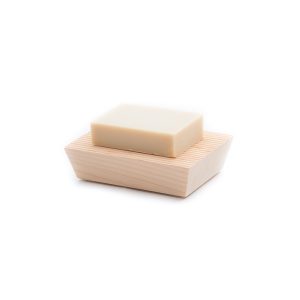A healthy and happy life should not be thought of as a goal—it’s created through habits. In the West, people tend to think of mindfulness in terms of meditation or yoga practices. But in Japanese culture, mindfulness can take the form of anything, whether it’s cooking, eating, bathing, or drinking tea. Even the simplest of your daily activities can become a form of meditation that invites happiness and health into your life.
Keep reading to discover four popular Japanese traditions that you can easily bring into your own life to practice of self-care and self-cultivation.
Tradition 1—Shojin ryori, translated as “food of devotion”

Shojin ryori is one of Japanese traditions on vegetarian cooking. This traditional is developed by Buddhist monks over centuries of living by the principles of simplicity and harmony.
“Sho” means focus; “jin” means advancing forward along the way; “ryori” means cooking. “Shojin” originally connoted efforts in pursuing the enlightened state of mind devoid of attachments.
For the monks in temples, the act of preparing food and eating is an exercise in appreciation and mindfulness. And for non-monks, the simple recipes and well-defined procedures of Japanese traditions make it achievable in our own kitchen.
How to exercise shojin ryori:
-
- Prepare food with organic and seasonal ingredients.
- Cook with more water than fat.
- When eating, put away phone, book, or TV, and focus on and enjoy the food.
- Chew slowly and be present when eating.

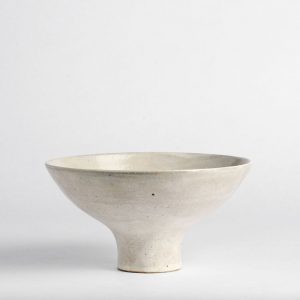
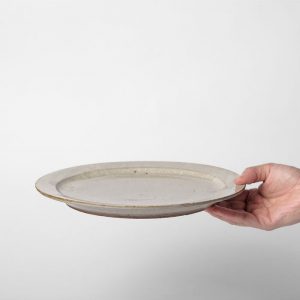
Tradition 2—Hara hachi bu, translated as “stop eating when 80 percent full”
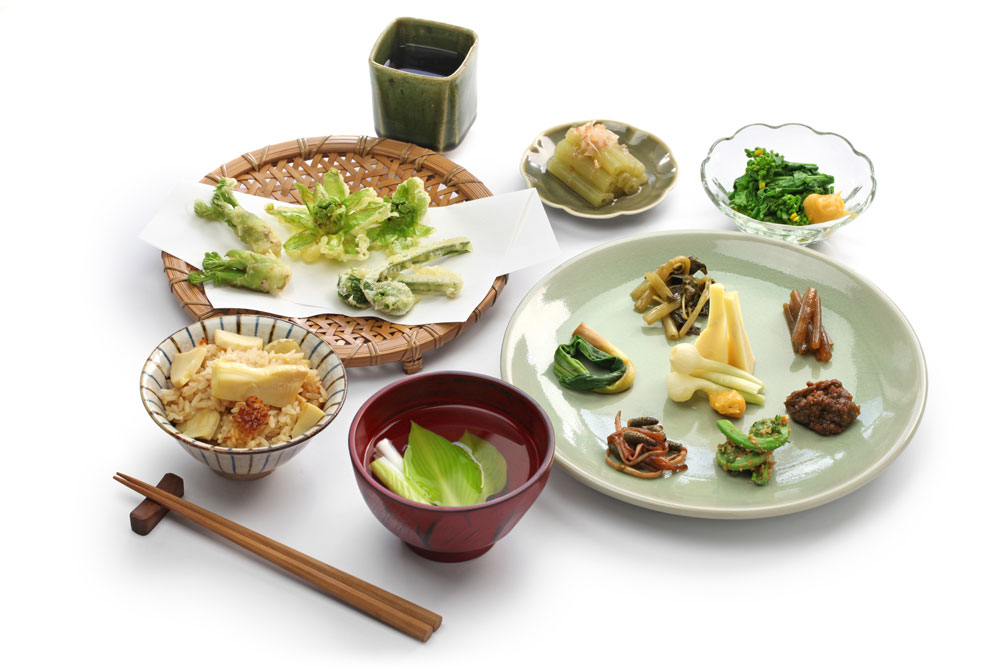
Hara hachi bu has been touted as the “secret” to Japanese longevity, especially for the residents of Okinawa, who enjoy one of the highest life expectancies in the world. The concept arises from the Confucian principle that one should eat only until 80 percent full.
According to nutritionists, following hara hachi bu has multiple health benefits, including strengthening the digestive system, maintaining a healthy weight, and decreasing acid reflux as well as other gastrointestinal problems and metabolic disorders.
Overeating forces your digestive system to take much longer to process the food. This one of Japanese traditions accelerates cellular oxidation, which in turn ages you faster. Okinawans, who have been following hara hachi bu for centuries, have the lowest levels of free radicals in their blood, which means lower risk of cardiovascular diseases, cancer, and other age-related diseases.
How to follow hara hachi bu:
- Reset your stomach muscle memory
Getting your stomach used to eating less takes about 15 to 20 meals. - Eat slowly
Eating slowly makes you feel more satisfied. - Have small plates
Food presented on multiple small plates will make you feel like you’re eating more than having just one big plate. - Avoid getting overly hungry
Allowing yourself to become too hungry will easily lead to overeating and poor choices in the quality of food.



Tradition 3—Chado, translated as “Way of Tea”

The ceremony of tea drinking is an important part of Japanese traditions today. It’s rooted in Zen Buddhism and has been formally practiced in Japan for more than 400 years.
On the surface, chado involves a series of simple acts—boiling water, making tea, offering it to others, and drinking it ourselves. However, there is much more to be discovered below the surface. Served with a respectful heart and received with gratitude, a bowl of tea satisfies both physical and spiritual thirsts.
By focusing on the details of preparing and drinking tea, the host and guests withdraw from the mundane world and enter into a shared, intimate moment of beauty and serenity.
How to have your own tea ritual:
- It’s not necessary to follow the strict steps of a formal tea ceremony, nor do you need to sit cross-legged. It can be as easy taking 15 minutes out of your day to slow down, reflect, and appreciate the little luxuries of life.
- Schedule a 15-minute window at a regular time every day. It will pay off to practice being present consistently, and it will improve your concentration for the rest of the day.
- Designate a special place in your home for the tea ritual. It doesn’t matter whether it’s a cozy corner, the kitchen table, somewhere with a good view, or your favourite armchair.
- Choose quality loose-leaf tea; throw away those cheap tea bags. It’s about enjoying the full experience and connecting with the tea. It doesn’t need to be expensive; some bulk teas are even cheaper than bags because there is no packaging or processing.
- Put away your smartphone and focus on enjoying the smell and taste of the fragrant beverage with a heart of gratitude.



Tradition 4—Ofuro, a traditional Japanese bath
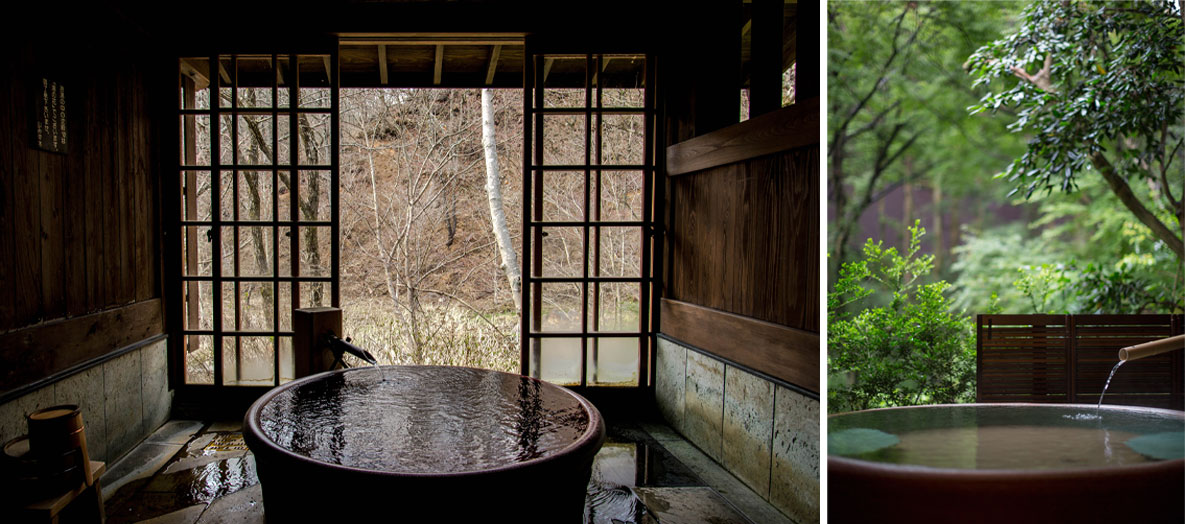
Japan is a nation that loves a good bath. For Japanese people, there’s hardly a more sacred ritual of bliss than slowly soaking the body in hot water at the end of the day.
In Japan, you usually cleanse yourself before stepping into the tub. The Japanese traditions of ofuro is not about hygiene; it’s a process of purifying the mind and body at a deeper level, washing away the fatigue of the day—healing and relaxing you.
Soaking in the warm water, take the quiet time of solitude to experience all the sensations of the bath—the heat on your skin, the fragrant steam in the air, the weightlessness of the body in water. These mindful Japanese traditions bring both the body and mind into a profound state of well-being.
How to take a bath the Japanese way:
- Take it slow.
Instead of taking a 5-minute shower, go for a 20-minute soak. Spend a few more minutes just soaking in the hot water. Use all your senses to truly enjoy and be present in the bathtub. Live in the moment to fully unwind. - Add some sea salts to the tub.
There are rich minerals and elements in sea salt that can help to reduce the acidic levels in the body and balance your pH. Put two full cups into the water to make sure the salt content is high enough to push the minerals into the body. - Add an herbal infusion to your bath.
Eucalyptus opens your lungs and helps you breathe more easily. Lavender calms your nerves. Orange blossoms aid in relaxation and lower blood pressure. Rose petals relax your body after a long day. Sage prevents stiff, sore muscles after a workout. Choose the one that fits your day. - Create a pleasant environment.
Lighting a candle or diffusing a few drops of essential oil can make your space feel more sacred, and the aroma therapy has its own health benefits. - Rehydrate afterwards.
Have a cup of tea or water to rehydrate yourself, and don’t forget to moisturize your skin as well, since the warm water will pull oils out during your soak.
Consistently making small changes will have a big impact over time. With these little habits of ritualized mindfulness, we can build daily routines that bring more happiness and health into our daily lives.
